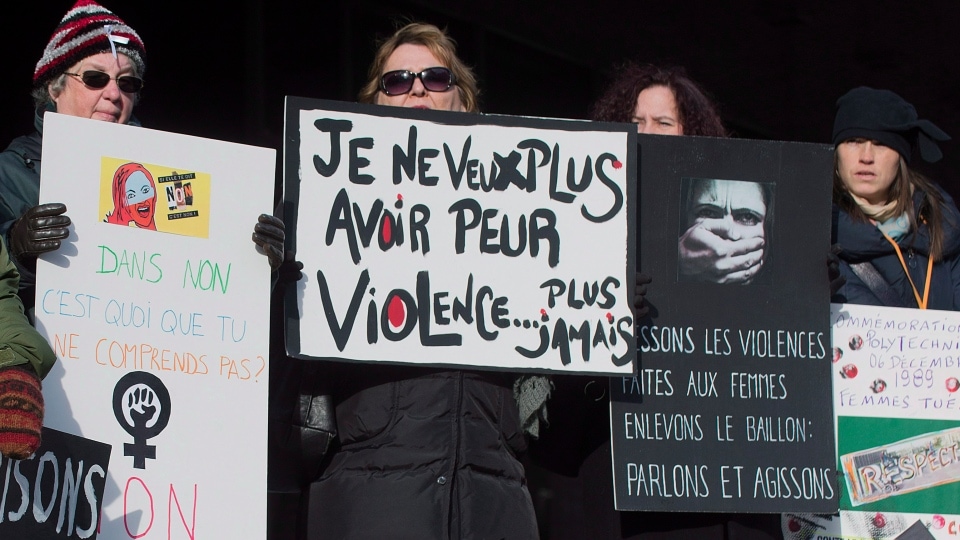
KJIPUKTUK (Halifax) – It’s been 28 years since the Montreal Massacre. It was on December 6, 1989 when Marc Lepine shot 14 women dead at Ecole Polytechnique for the crime of being feminists.
Being feminists is shorthand for taking men’s jobs or opportunities. That is an explanation Marc Lepine – who himself failed to get a place at the Montreal engineering school — left in a note about why he killed the women. All but one of the murdered women were engineering students; one was a member of the staff at the university.
Last week, a number of articles in the media revealed that a Quebec group, Tous contre un registre Québécois des armes a feu, or loosely translated, All against a Quebec firearms registry, is supported by the National Firearms Association. On December 6 this year the group planned to protest the Quebec government’s plan to institute a long gun registry.
Ironically, the protest was to take place at the Place du 6-décembre-1989, a memorial park which honours the 14 murdered women. It seems that some important politicians, including the new mayor of Montreal and the Prime Minister weighed in to discourage the demonstrators and finally, the men backed down– grumbling that instead they would protest on December 2nd, four days earlier. Guy Morin spokesman for the group said, “We figured (the event would trigger) emotions, but we didn’t think it would be so emotional.” Really?
Another club member, Gino Marra, urged gun enthusiasts to take a stand against gun control, “”I think most of the hunters and sport shooters are fed up being targeted as a threat to public safety.”
In addition to the protest, a petition which calls for the bill to be ditched, has gathered more than 36,000 signatures and the plan is to present to the National Assembly in Quebec in mid-March.
So how far have we come in 28 years?
Here are some facts:
Indigenous women represent only 4.3 per cent of the total female population, yet 16 per cent of all female homicide victims are Indigenous.
Of the 6,230 female victims of homicide between 1980 and 2015, 12% or 748 were reported as being killed by a ‘casual acquaintance’. 24% of female victims killed by a casual acquaintance were Indigenous.
As of 2014, there were 1181 missing and murdered Indigenous women, of whom 164 were missing and 1,017 were murdered.
One woman in Canada is killed by her intimate partner every 5 days.
For more about the Montreal Massacre, see my earlier blog entry Vive la difference.
Judy Haiven is a retired professor of Industrial Relations at Saint Mary’s University
If you can, please support the Nova Scotia Advocate so that it can continue to cover issues such as poverty, racism, exclusion, workers’ rights and the environment in Nova Scotia. A pay wall is not an option, since it would exclude many readers who don’t have any disposable income at all. We rely entirely on one-time donations and a tiny but mighty group of dedicated monthly sustainers.



